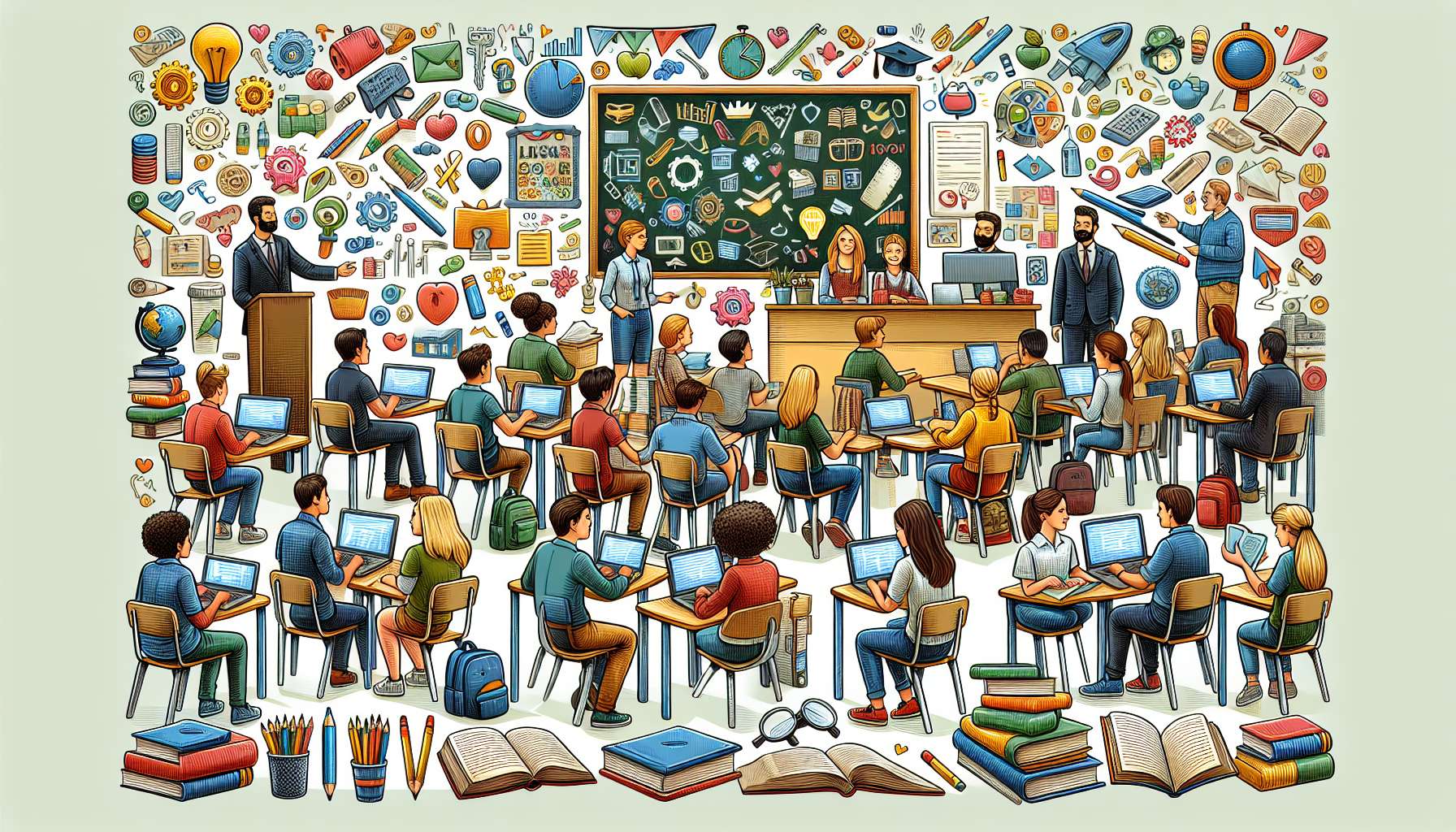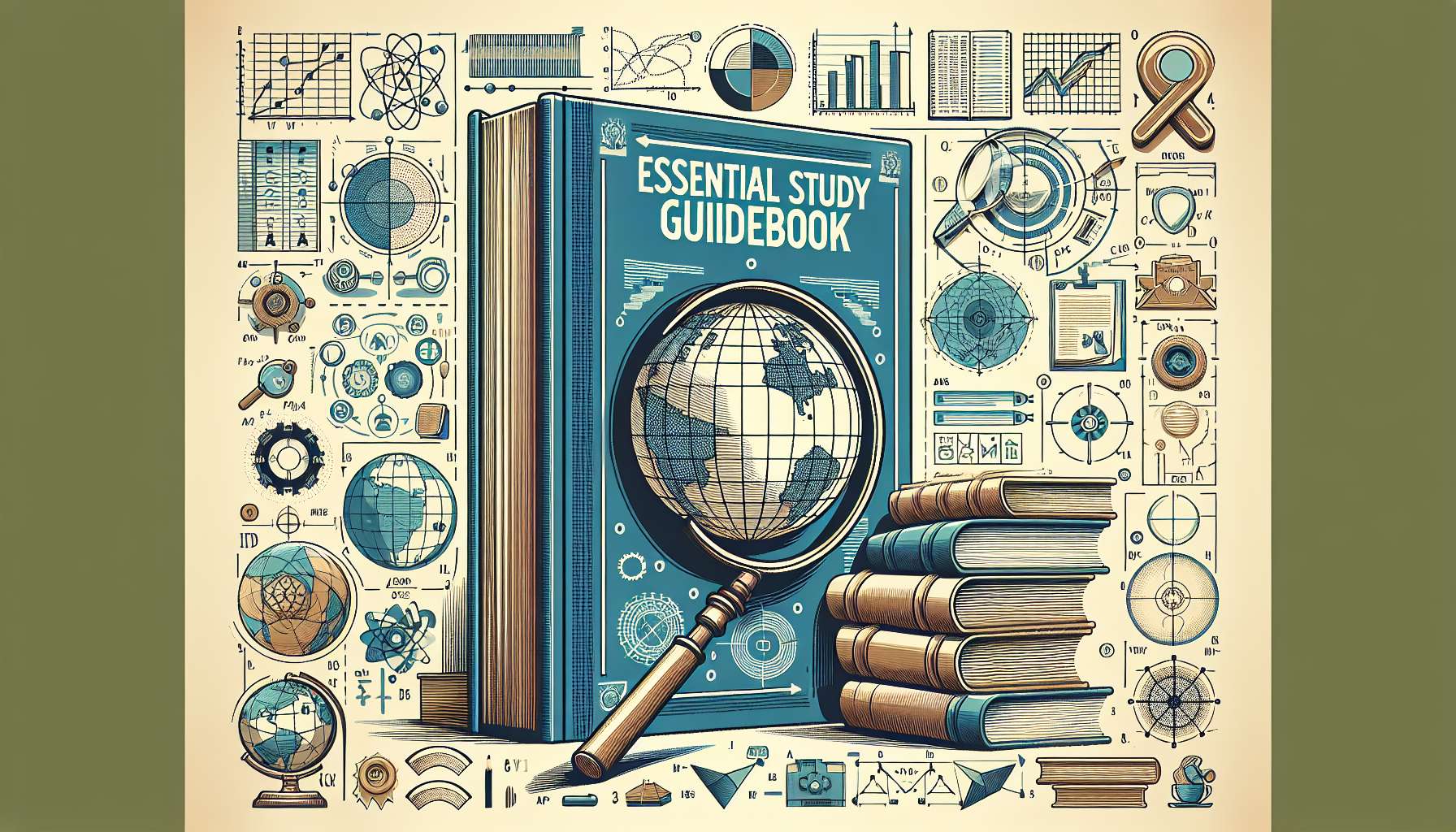Unlocking the Power of Learning Essentials
Learning is a lifelong journey that shapes our understanding of the world, hones our skills, and fuels personal growth. At the core of this process lie the essential elements that drive our ability to absorb, retain, and apply new information effectively. These fundamental building blocks, known as ‘Learning Essentials’, are key to fostering a deep and meaningful educational experience. In this article, we will delve into the various facets of Learning Essentials, exploring their significance, applications, and impact on learning outcomes. Join us on this enlightening exploration as we uncover the secrets to mastering the art of learning.
The Foundation of Learning Essentials
At the heart of Learning Essentials lies a set of foundational skills and principles that form the bedrock of effective learning. These include critical thinking, problem-solving, communication, and collaboration. Critical thinking, for instance, enables individuals to analyze information, evaluate arguments, and make informed decisions. Similarly, problem-solving skills empower learners to identify challenges, explore solutions, and adapt to changing circumstances. Communication and collaboration, on the other hand, foster effective interaction, teamwork, and knowledge sharing.
By honing these essential skills, learners not only acquire knowledge but also develop the capacity to apply it in real-world scenarios. Whether in academic settings, professional environments, or personal pursuits, mastering the foundation of Learning Essentials equips individuals with the tools they need to thrive and succeed.
The Role of Metacognition in Learning Essentials
Metacognition, or the awareness and understanding of one’s own thought processes, plays a crucial role in the cultivation of Learning Essentials. By fostering a reflective and self-regulated approach to learning, metacognition helps individuals monitor their own thinking, evaluate their strategies, and adjust their learning behaviors accordingly. This metacognitive awareness enables learners to set goals, plan their actions, and assess their progress effectively.
Research has shown that incorporating metacognitive strategies into learning activities can enhance retention, comprehension, and transfer of knowledge. By encouraging learners to think about how they think, educators can empower them to become more autonomous and strategic in their learning endeavors. In essence, metacognition serves as a guiding light that illuminates the path to mastering Learning Essentials.
The Intersection of Technology and Learning Essentials
In today’s digital age, technology has become an integral part of the learning landscape, reshaping the way we acquire and process information. From online resources and interactive tools to virtual reality and artificial intelligence, technology offers a wealth of opportunities to enhance Learning Essentials. For example, digital platforms can provide personalized learning experiences tailored to individual needs and preferences, promoting engagement and motivation.
Moreover, technology enables collaborative learning environments where students can connect, communicate, and collaborate with peers and mentors from around the world. By harnessing the power of technology, educators can create immersive and interactive learning experiences that stimulate curiosity, creativity, and critical thinking. The seamless integration of technology and Learning Essentials paves the way for a more dynamic and inclusive educational ecosystem.
Unlocking Creativity Through Learning Essentials
Creativity is a cornerstone of effective learning, allowing individuals to think outside the box, explore innovative solutions, and express themselves in unique ways. By nurturing creativity, Learning Essentials can unleash the full potential of learners, fostering a spirit of curiosity, experimentation, and discovery. Whether through art, music, writing, or problem-solving, creativity plays a vital role in shaping the learning process.
Integrating creative practices into educational contexts can enhance engagement, motivation, and retention of information. By encouraging students to approach learning tasks from multiple perspectives and explore unconventional solutions, educators can spark their imagination and ignite their passion for learning. Creativity, when combined with Learning Essentials, becomes a powerful catalyst for personal growth and intellectual development.
The Future of Learning Essentials
As we look to the future, the landscape of education is poised for transformation, driven by advances in technology, evolving pedagogical approaches, and changing societal needs. The integration of Learning Essentials into educational curricula will play a critical role in preparing learners for the challenges and opportunities of the 21st century. By equipping students with the essential skills and competencies they need to thrive in a rapidly changing world, educators can empower them to become lifelong learners and adaptable problem-solvers.
Furthermore, the democratization of knowledge through digital platforms and online resources will democratize access to Learning Essentials, making learning more inclusive and accessible to a global audience. By leveraging the power of technology, educators can bridge the gap between traditional and digital learning environments, creating a seamless and interconnected educational ecosystem. The future of learning is bright, fueled by the transformative potential of Learning Essentials.
Expert Opinions on Learning Essentials
Experts in the field of education and cognitive science have emphasized the importance of Learning Essentials in shaping the learning experience. According to Dr. John Hattie, an influential education researcher, “The key to effective learning lies in developing the essential skills and strategies that enable students to engage deeply with the material, make connections, and transfer their understanding to new contexts.” Similarly, Dr. Angela Duckworth, a renowned psychologist, has highlighted the role of grit and perseverance in cultivating a growth mindset and achieving academic success.
By incorporating expert insights and perspectives into educational practices, educators can enhance their understanding of Learning Essentials and tailor their instructional strategies to meet the diverse needs of learners. Drawing on the latest research and best practices, educators can create enriching and empowering learning experiences that foster the development of essential skills and competencies.
Common Misconceptions About Learning Essentials
Despite their importance, Learning Essentials are often overlooked or misunderstood in educational settings. One common misconception is that these skills are innate and cannot be taught or developed. In reality, Learning Essentials are dynamic and malleable, capable of being cultivated and enhanced through deliberate practice and reflection.
Another misconception is that Learning Essentials are only relevant in academic contexts and have limited applicability in real-world scenarios. On the contrary, these skills are essential for success in a wide range of domains, including professional, personal, and social contexts. By recognizing the universal value of Learning Essentials, educators can empower learners to navigate the complexities of the modern world with confidence and competence.
Comparative Analysis of Learning Essentials Frameworks
Several frameworks and models have been developed to define and operationalize Learning Essentials in educational contexts. One of the most widely recognized frameworks is the Partnership for 21st Century Learning (P21) Framework, which identifies essential skills such as critical thinking, communication, collaboration, and creativity as key components of a well-rounded education.
In contrast, the World Economic Forum’s Future of Jobs Report emphasizes the importance of skills such as complex problem-solving, emotional intelligence, and cognitive flexibility in preparing individuals for the workforce of the future. By comparing and contrasting these frameworks, educators can gain valuable insights into the diverse perspectives on Learning Essentials and tailor their instructional practices to meet the evolving needs of learners.
FAQs About Learning Essentials
Q: What are the core components of Learning Essentials?
A: The core components of Learning Essentials include critical thinking, problem-solving, communication, collaboration, metacognition, and creativity.
Q: How can educators incorporate Learning Essentials into their teaching practices?
A: Educators can incorporate Learning Essentials into their teaching practices by designing engaging and interactive learning experiences, providing opportunities for collaborative work, fostering a growth mindset, and promoting metacognitive awareness.
Conclusion
In conclusion, Learning Essentials are the building blocks of effective learning, shaping the way we acquire knowledge, develop skills, and navigate the complexities of the modern world. By cultivating essential skills such as critical thinking, problem-solving, communication, collaboration, metacognition, and creativity, individuals can unlock their full potential and thrive in a rapidly changing educational landscape.
As we look to the future, the integration of Learning Essentials into educational curricula will play a pivotal role in preparing learners for the challenges and opportunities that lie ahead. By harnessing the transformative power of technology, creativity, and expert insights, educators can create enriching and empowering learning experiences that foster a culture of lifelong learning and growth.
To wrap things up, Learning Essentials are not merely a set of skills and competencies but a guiding philosophy that empowers individuals to embrace learning as a lifelong journey of discovery, growth, and transformation. Let us embark on this journey together, armed with the knowledge and wisdom of Learning Essentials, as we explore the boundless possibilities that await us in the world of education.




